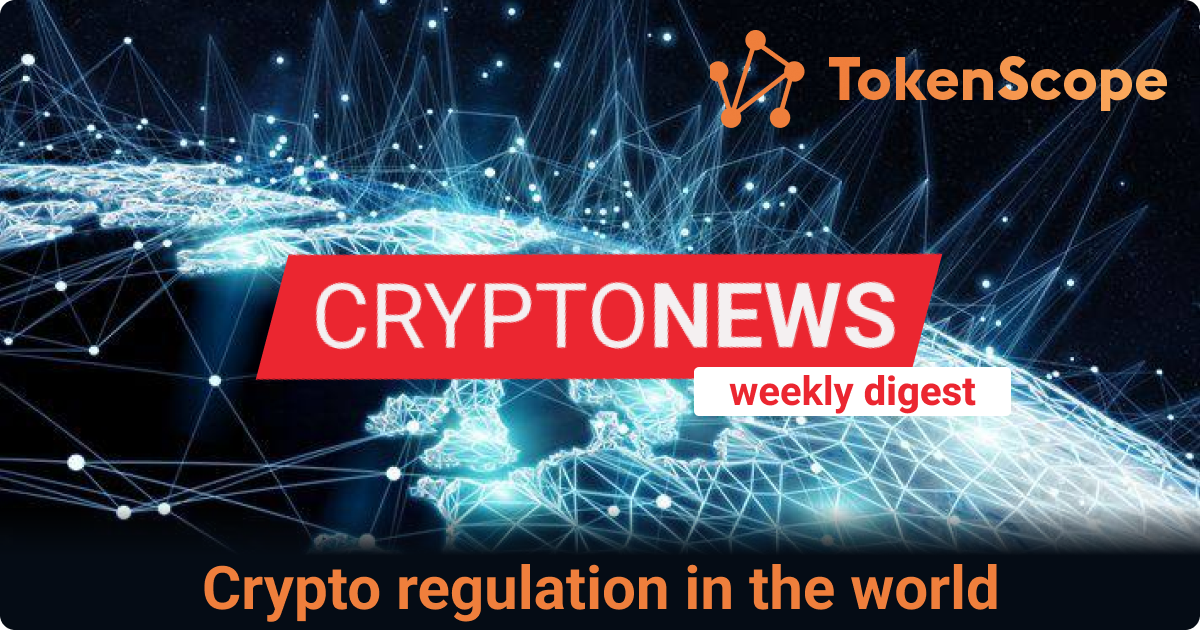Crypto regulation in the world: weekly digest #122

South Korea
South Korea's largest cryptocurrency exchange, Upbit, is currently under investigation for significant violations of Know Your Customer regulations. The Financial Intelligence Unit (FIU) of the Financial Services Commission has uncovered between 500,000 and 600,000 potential KYC breaches during a routine review related to Upbit's license renewal process.
The FIU discovered that Upbit allegedly approved a vast number of accounts without proper identification verification, including cases where submitted IDs were blurred or illegible. This raises serious concerns about the exchange's compliance with anti-money laundering and combating the financing of terrorism laws, which require strict KYC procedures to prevent misuse of accounts for illegal activities.
Each violation could result in fines up to 100 million Korean won (approximately $71,740), leading to potential total penalties in the billions due to the sheer number of violations identified.
The ongoing investigation has put Upbit's license renewal on hold, as authorities continue to assess the implications of these violations on its operational capabilities and market position. The review process began in August and is expected to take additional time due to the extensive nature of the findings.
This scrutiny comes amid increasing regulatory oversight in South Korea's cryptocurrency sector, where exchanges are facing heightened scrutiny to ensure compliance with financial regulations.
The situation remains fluid as authorities evaluate the full extent of the violations and their impact on Upbit's future operations.
The EU
The European Banking Authority (EBA) has recently issued new guidelines that outline the compliance requirements for Payment Service Providers and Crypto-Asset Service Providers regarding the European Union's and national restrictive measures when transferring funds or cryptocurrencies. These guidelines aim to enhance regulatory clarity and ensure that financial institutions adhere to the necessary legal frameworks.
PSPs and CASPs must implement robust mechanisms to ensure compliance with EU sanctions and national restrictive measures. This includes conducting thorough due diligence on customers and transactions to identify any potential risks related to sanctioned entities or individuals.
The guidelines require institutions to develop a comprehensive risk assessment framework that evaluates the risks associated with transactions involving cryptocurrencies. This framework should be dynamic, adapting to changes in regulatory landscapes and emerging risks in the crypto space.
Institutions are mandated to report suspicious activities related to breaches of sanctions. This involves establishing clear reporting channels and ensuring that staff are trained to recognize signs of potential violations. The EBA emphasizes the importance of maintaining detailed records of compliance efforts, including customer due diligence processes, transaction monitoring, and any actions taken in response to identified risks. This documentation is crucial for regulatory audits and assessments.
PSPs and CASPs are also encouraged to cooperate with national competent authorities and other relevant bodies in sharing information related to compliance with restrictive measures. This collaboration is vital for enhancing the overall security of the financial system.
The EBA guidelines are expected to be implemented by all relevant institutions within a specified timeframe, ensuring that they align their operations with these new standards effectively.
These guidelines represent a significant step towards strengthening the regulatory framework governing digital financial services within the EU, particularly in light of increasing concerns regarding money laundering, terrorist financing, and compliance with international sanctions.
We continue to highlight the news of the world of crypto regulation worldwide. Please stay with us!




